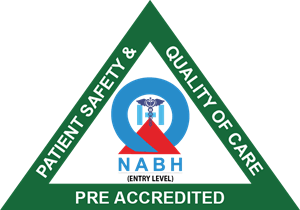- Home
- About
- Specialities
Centers of Excellence
- Facilities
- Procedures
Procedures
- Doctor List
- Health Packages
- Contact


Piles also known as Haemorrhoids (HEM-uh-roids), are swollen veins in your anus and lower rectum, similar to varicose veins. Haemorrhoids can develop inside the rectum (internal Haemorrhoids) or under the skin around the anus (external Haemorrhoids)
Haemorrhoids are quite common and almost 3 out 4 adults have some time in their life. Haemorrhoids have a number of causes, but often the cause is unknown.
There are effective options available to treat Haemorrhoids. Many people get relief with home treatments and lifestyle changes.
Signs and symptoms of Haemorrhoids usually depend on the type of Haemorrhoid.
External Haemorrhoids
These are under the skin around your anus. Signs and symptoms might include:
Internal Haemorrhoids
Internal Haemorrhoids lie inside the rectum. You usually can’t see or feel them, and they rarely cause discomfort. But straining or irritation when passing stool can cause:
Thrombosed Haemorrhoids
If blood pools in an external Haemorrhoid and forms a clot (thrombus), it can result in:
The veins around your anus tend to stretch under pressure and may bulge or swell. Haemorrhoids can develop from increased pressure in the lower rectum due to:
As you age, your risk of Haemorrhoids increases. That’s because the tissues that support the veins in your rectum and anus can weaken and stretch. This can also happen when you’re pregnant, because the baby’s weight puts pressure on the anal region.
Complications of Haemorrhoids are rare but include:
The best way to prevent Haemorrhoids is to keep your stools soft, so they pass easily. To prevent Haemorrhoids and reduce symptoms of Haemorrhoids, follow these tips:
If you use fiber supplements, be sure to drink at least eight glasses of water or other fluids every day. Otherwise, the supplements can cause or worsen constipation.
| -- | -- |
Get to know our dedicated group of board certified doctors with exemplary qualifications, here to assist you on your healthcare journey.
These are stories that involves resilience, persistence & personal strength. Overcoming odds, difficulty and of course challenges of health, these stories ought to inspire us to look beyond the difficulties because there is always more to our lives than just challenges


You can choose to walk in to meet our doctors in their OPD or better still to book your appointment on line. You don’t need to wait. We have specialists in almost all fields of modern medicine.
We have rendered services in Homoeopathy for over 5 decades.
© copyright 2021 | All rights reserved